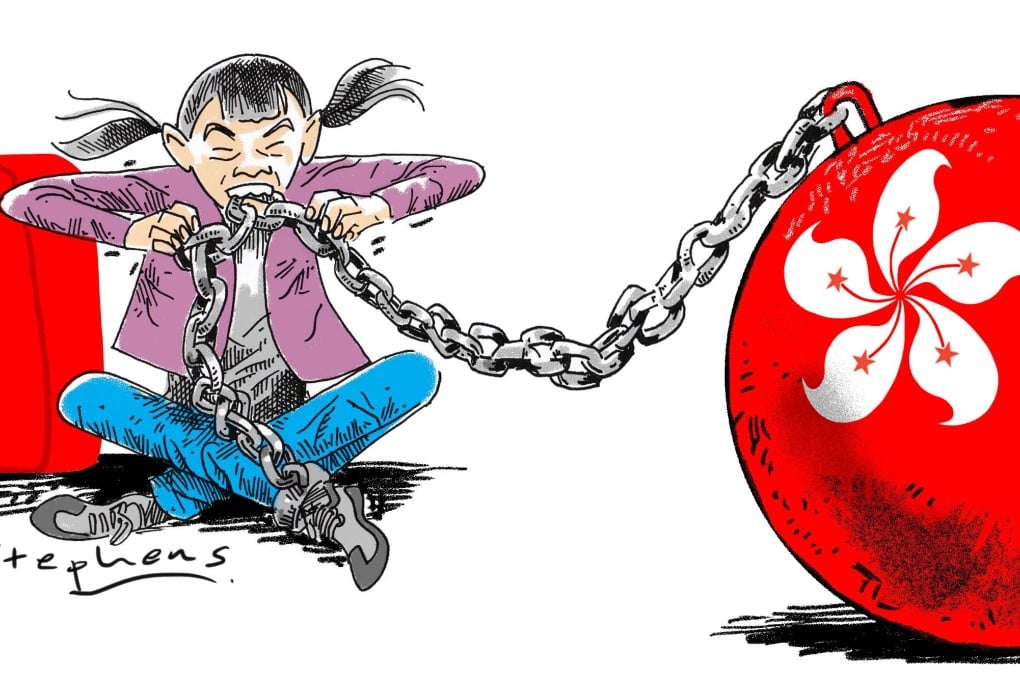Belt and Road offers discontented Hong Kong youth a vista of opportunities
Victor Zheng says young Hongkongers frustrated by the lack of upward mobility here need to see the world to gain a wider perspective, and the new Silk Road is beckoning


Four in 10 Hongkongers want to leave city, with some already planning their exit

Seven out of 10 Hongkongers think the city has become a worse place in which to live, survey says
However, a follow-up question to those who wished to leave, to see if they had taken any action, had only one-tenth answering “yes”. This means those who have taken solid action to leave Hong Kong represent only 4.2 per cent of all respondents surveyed.
Faced with limited options, their discontent may accumulate, which may turn to persistent social unrest
A further analysis by age, education and level of trust in the local government indicated that younger people (aged 18 to 30) had a higher desire to emigrate than did older people (aged 51 and above). Those with college education or higher showed more desire to leave than people with a lower level of education. Respondents who distrust the government also indicated a higher desire to leave than those who trust it. Also, respondents who gave the chief executive a lower mark have a higher desire to leave Hong Kong.
In the 1980s and 1990s, there was a big brain drain due to a lack of confidence in the future of Hong Kong or strong dissatisfaction with socio-political development. Sociologists Lau Siu-kai and Wan Po-san quoted surveys conducted by professional associations at the time to illustrate that large proportions of professionals were keen to leave Hong Kong. They found 85 per cent of the local members of the Royal Institute of Chartered Surveyors, 80 per cent of the members of the Hong Kong Society of Accountants, and 60 per cent of the members of the Law Society expressed their intention to leave.
Six in 10 Hongkongers unhappy in their jobs - and half intend moving on in the next year

Hong Kong Occupy activists deliver upbeat message at second anniversary rally
More importantly, for these groups, their high desire to leave turned to solid action. According to demographer Ronald Skeldon, from 1980 to 1992, a total of 450,300 people had applied for an overseas visa (mainly for Canada, Australia and the United States), that is, they had taken action to leave. In other words, since these groups of people were equipped with economic, human and social capital, they chose to leave.
